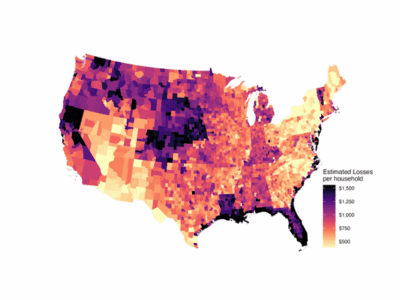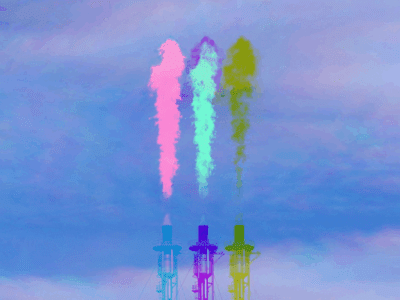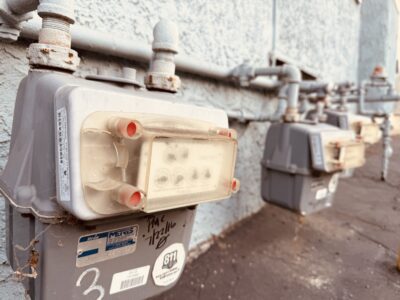Solar Power — More Reliable Than You Might Think
Wind and solar power are intermittent — we can rely on them to make power only when the wind blows or the sun shines. And it can cost a lot (in terms of dollars and the environment) to fill in the gaps with conventional power sources. That’s why the development of energy storage is so important.
As the story goes, if you think wind is unreliable, just look at the sun. While winds can gust and ebb, the sun can be hidden behind clouds one minute, shining brightly the next. A new study from the Lawrence Berkeley National Laboratory explains the problem, and offers a solution. If the skies are clear, the sun in any given location provides energy that can be graphed along a smooth arc. Add clouds to the variable, and the graph looks like evidence of a violent earthquake. Together, they look like this:

Andrew Mills and Ryan Wyser at LBNL considered what happens when the output in a number of different locations is pooled together. They found that taken together, the power from 23 sites across Oklahoma and Kansas smooths out the curb considerably.

Averaging the output of even five close-by sites makes a dramatic improvement as well. On balance, they find that geographically distributed solar photovoltaics are just about as reliable as wind, and that such a pooling of resources significantly reduces the cost of managing the grid to support solar.
These savings are not traditionally thrown into the equation when considering the cost and value of “distributing” renewable resources — generating the power on homes and businesses and at other spots closer to demand. Hopefully, LBNL’s work to date, and the studies to follow, will help to change that.
Reader Comments
2 Replies to “Solar Power — More Reliable Than You Might Think”
Comments are closed.







That is an interesting take on solar compared to wind in terms of reliability. Obviously solar farms in Michigan would just not make sense, since the cloud cover there is pretty intense, but I could definitely see deserts being used to solar farming.
Yes, solar is the future, but most of us don’t have the habit to use solar power